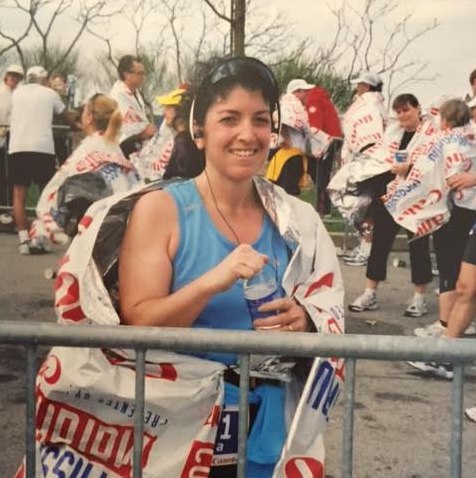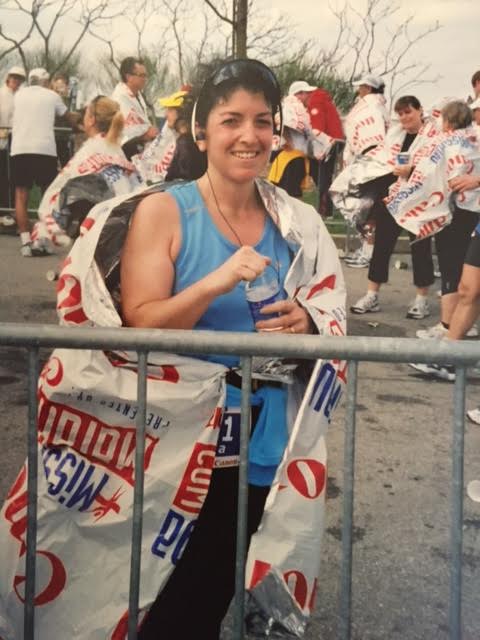Stories from the run commute: “I run because my family told me that girls shouldn’t”
Growing up, Fatima Cabral's family told her that sports were for the boys. It inspired her to go against that message and start to run.


It’s 12 kilometres home from where Fatima Cabral, 50, works. If she runs it in the entire way, not only will Cabral get to skip out on the annoying bus ride, but she’ll also get to spend time in nature running on the trail network. The gravel paths that she can briskly run on are a much better choice than sitting in a vehicle stuck in Toronto traffic or detouring during the busy construction season.
That realization is exactly why Cabral took up run commuting. “I was frustrated by how long it took me to run home,” she says. By taking a backpack and running gear to work though, she gets to avoid all that, get in her exercise and relax with her husband, Eric, and dog in the evenings. If she decides to run a shorter section of the route home, she can do about seven or eight kilometres. Usually, she does this two or three times a week.
Cabral says she started running because her family held the opinion that girls shouldn’t do sports. “Growing up being a girl, I was discouraged by my family,” she says. She remembers this message being delivered in her household frequently.
“Girls were: you stay home and you don’t do the sport, guys do the sports,” she says. “It was this secret dream that I had to do those things.”
RELATED: Stories from the run commute: I run every day since returning from maternity leave
RELATED: Stories from the run commute: I ran to work in 1979
She moved away from her home in the small town of Chatham, Ont. to Ottawa University and decided to give it a shot– she got active. “I see myself as very different from my family,” she says adding that she is not someone who easily just follows along.
Being active was a part of her personality that she was able to develop so much so that in her adult years, she was able to establish a career where physical exercise was a large part of it. She currently works at the Aphasia Institute in north Toronto teaching fitness to people with disabilities. More specifically, she leads classes for adults who have been given an official aphasia diagnosis. Aphasia is a language and communications issue that is often a result of a stroke, brain injury or some other neurological condition and it affects many people’s ability to communicate, read or write.
Cabral’s role is to teach fitness to these people who suffer from various degrees and symptoms of the neurological condition. Because she’s teaching fitness for so much of the day, she feels that it’s essential to keep herself in shape too. “I have to practice what I preach,” she says.
When run commuting home, she brings a bag to work that contains all of the essentials: extra clothes, shoes, etc. Her way of making it work is setting everything she needs aside in the bag the night before and putting it beside the front door of her house. “So I have no reason not to follow through,” she says. “There’s no excuse, I have it ready.”
She says that the push-back she received growing up has driven her more. Now, she acknowledges that her mother doesn’t completely understand her commitment but her father is supportive. The big takeaways from her running is that she is going her own thing, and hey, running is just good for you. “It keeps me feeling young and energetic. I love running, it feels good,” says Cabral.
Going forward, she is going to continue to run, teach exercise classes and bring her little backpack to work to run home on the trails. “I wanted to be my own person and being active became my identity,” she says. “It’s so much a part of me.”


